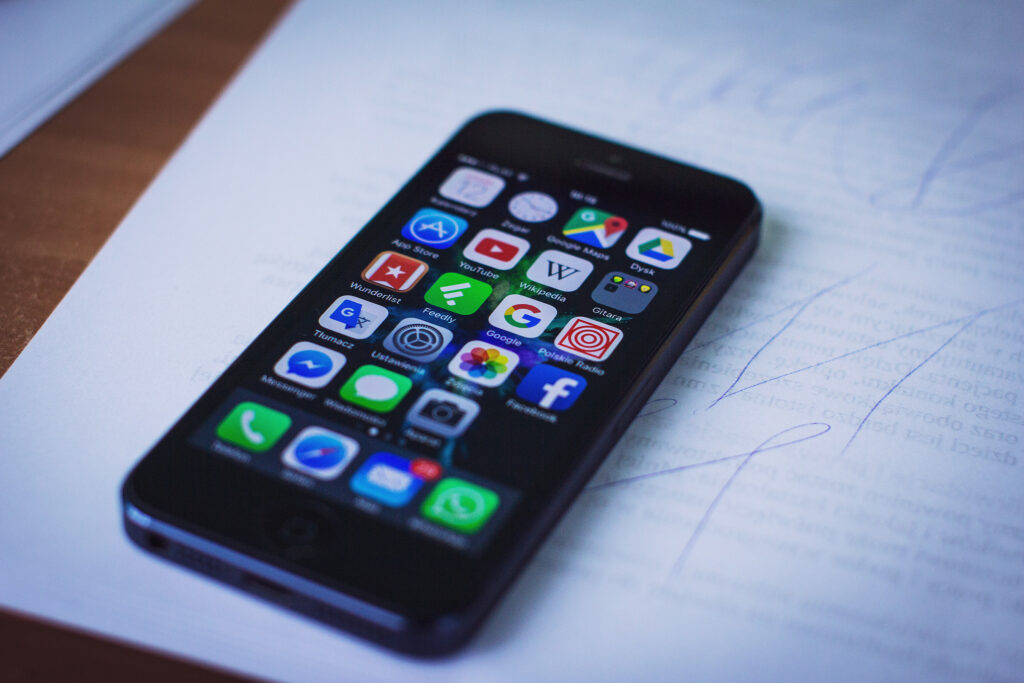Psychological (i.e. in-person therapy) and pharmacological treatments continue to be the first-line treatments for mental health issues, however, web-based applications are becoming increasingly more popular in treating symptoms. A new study, led by Dr. David C. Mohr of Northwestern University, presents the design and use of 13 skills-based clinical apps to treat symptoms of depression and anxiety. Published in the Journal of Medical Internet Research, the article’s authors describe a pilot study utilizing a suite of applications, through which participants saw significant symptom improvement for both anxiety and depression.
“We now have evidence these approaches will likely work. They are designed to teach many of the same skills therapists teach patients. Different apps are expected to work for different people. The goal is to find what’s right for you,” Dr. Mohr stated in a press release to ScienceDaily.

Web-based treatments for depression and anxiety have already shown to have some efficacy, especially, as the authors’ state, when they have the added benefit of human support or coaching. However, there is not as much research on mobile phone applications designed for treatment of mental health. As the number of individuals utilizing phones, apps, and particularly health-related apps, increases, it becomes imperative that we understand the efficacy and satisfaction of using these. Further, with many individuals not being able to afford or access psychological treatment that they might want or need, the demand of these will increase.
For this study, the authors designed and evaluated an app suite composed of 13 clinical apps each targeting a single or related set of skills (e.g. goal setting, worry management, calming exercises). The design of these was purposeful and took into account the way individuals currently use apps, which mainly consists of short, frequent interactions. The apps, therefore, deviate from the more traditional, psychoeducational style of web-based health, and align more with real-world interactions. A human support component, in the form of coaching, was added given prior research that found this addition to improve outcomes.
Participants were recruited over the course of a year from a number of sources, including in-person and online. For this arm of the study, participants needed to meet certain criteria, which included a minimum score of 10 on the Patient Health Questionnaire-9 (PHQ-9) to gauge depressive symptoms, or a minimum score of 8 on the Generalized Anxiety Disorder-7 questionnaire (GAD-7). Participants were excluded from the study if they had any impairment that would be a barrier to their participation and if they met criteria for a severe psychiatric disorder. They were also excluded if they had initiated or changed medication for depression or anxiety 2 weeks prior to their study start date. The study reports outcomes on 105 individuals. Once participants began the study and had access to the app suite, they received 8 weeks of individual coaching that helped them establish goals and use the apps. Participants were assessed at baseline, week 4, and week 8.
“At the end of the treatment, 37% of participants met criteria for full remission or no symptoms of depression, 40% met criteria for recovery or mild symptoms, and 22% continued to meet criteria for referral for treatment. Similarly, 42% of participants met criteria for full remission or no symptoms of anxiety, 45% met criteria for recovery or mild symptoms, and 14% continued to meet criteria for referral for treatment.”
Participants had significantly improved symptomatology as seen both through the PHQ-9 and the GAD-7. Despite participants meeting criteria for depression or anxiety, they showed improvements on both questionnaires. The researchers found no relationships between the outcomes, any concurrent treatment, or most of the demographic variables. The only relationship found was between age and anxiety scores, with greater age having an association with improved symptoms of anxiety.
Although the outcomes showed clear support for novel interventions, the study was not without limitations. The most blatant one involves the effect of coaching, a component which was much smaller in the researchers’ initial plans, but which grew based on the needs of the participants. Despite the use of the entire system showing positive results, the authors state that it is hard to separate the effects of the coaching from those of the app.
****
Mohr, D. C., Tomasino, K. N., Lattie, E. G., Palac, H. L., Kwasny, M. J., Weingardt, K., … & Caccamo, L. (2017). IntelliCare: An eclectic, skills-based app suite for the treatment of depression and anxiety. Journal of Medical Internet Research, 19(1), e10. (Abstract)















With or without coaching, these figures appear to kick the ass of pharmaceutical interventions!
Report comment